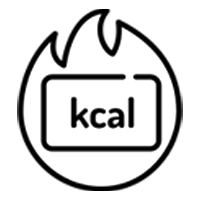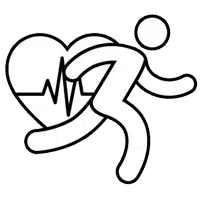Show summary Hide summary
What are the health benefits of cycling?

All you need to know about cycling Cycling
What are the health benefits of cycling? Use the tool below to find out all the benefits of cycling and discover whether this sport meets your goals and expectations.
More information on cycling
Is cycling good for your health? Is it a good sport that’s accessible to everyone? Whether you’re a beginner or an experienced cyclist, you’ll find a list below of the benefits and problems you may encounter when cycling.

TOP 4 benefits and advantages of cycling
Regular cycling has many benefits for both the mind and body. Cycling outdoors allows you to :
- Cycling builds endurance, strengthens the heart muscle and improves breathing
- Improve venous circulation in the legs and relieve heavy legs
- Cycling helps to strengthen muscles and bones
- Cycling helps reduce stress and anxiety
What are the disadvantages and contraindications of cycling?
Cycling has more advantages than disadvantages. If you suffer from knee problems, osteoarthritis, sciatica, lumbago or heart and breathing problems, for example, it’s advisable to seek medical advice.
Definition, advice and practical information on cycling!
Want to get some exercise without pushing yourself too hard? Cycling is an outdoor physical activity that is accessible to all ages.
It can be done alone or in a group, in the city or in the country, and at different levels of intensity. A veritable institution in countries such as the Netherlands and Denmark, almost 3 million people cycle regularly in France. An excellent alternative to the car, cycling is a fit, economical and environmentally-friendly solution. It’s also a physical activity that’s gentle on the joints, and recommended for people wishing to resume physical activity gradually.
The Role of Nutrition in Enhancing Sports Performance
Participating in sports brings numerous health benefits, but to fully optimize these advantages, nutrition is crucial. A well-balanced and nutrient-dense diet complements physical activity by providing the necessary fuel for peak performance and recovery.
A balanced diet is essential for maintaining energy levels and muscle recovery, offering a variety of macronutrients—carbohydrates, proteins, and fats. Additionally, incorporating a diverse range of vitamins and trace elements strengthens the immune system and prevents deficiencies.
Understanding energy balance is fundamental for maintaining a healthy weight and enhancing sports performance. Balancing the calories consumed with those burned during physical activity ensures optimal body function.
For sustainable health and fitness goals, adopting effective strategies for weight loss and maintenance is crucial. Practical advice and a holistic approach to diet and exercise can help you achieve and maintain these goals.
To sum up, combining a nutritious diet with regular physical activity is essential for maximizing the health benefits of sports. This approach not only enhances physical performance but also promotes overall well-being.
All you need to know about cycling Cycling
All sports in detail!
















































